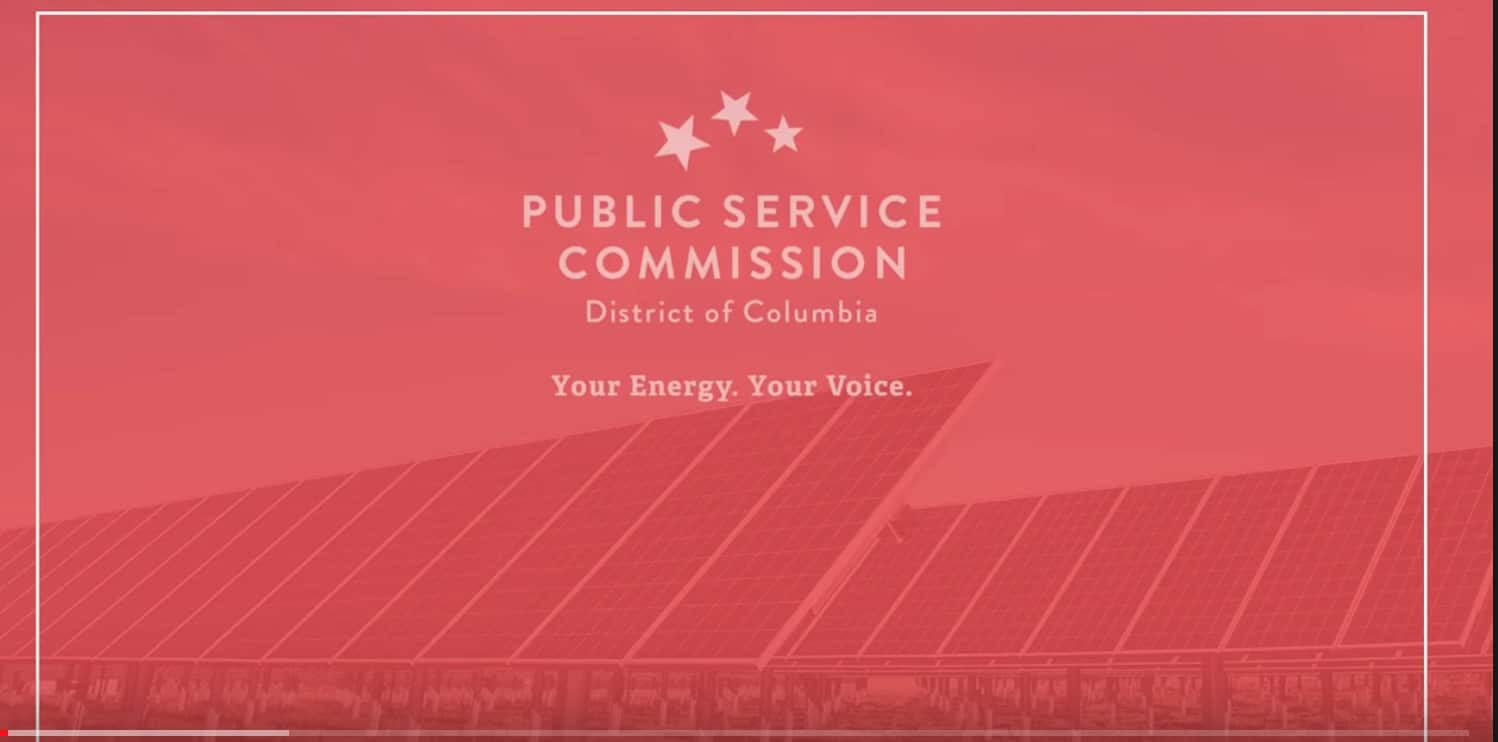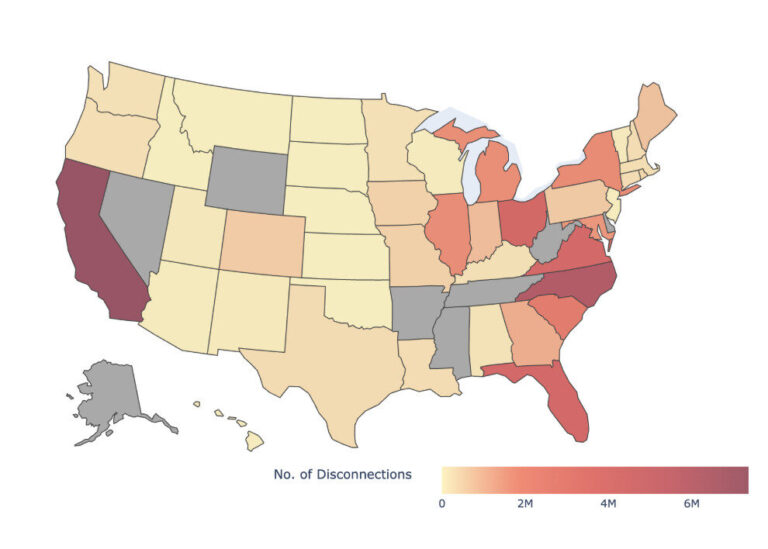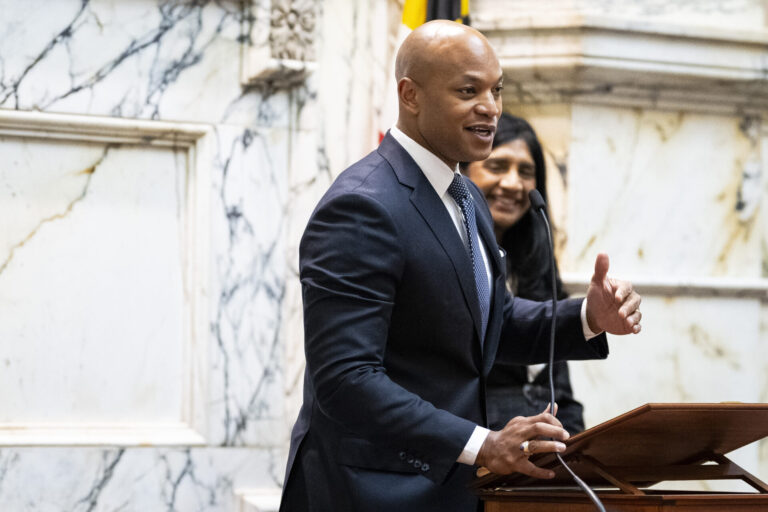Washington DC PSC Rejects FOIA requests for records of Willie Phillips’ participation in industry-funded events

The Washington DC Public Service Commission has rejected a Freedom of Information Act request regarding Chairman Willie Phillips’ participation in invitation-only events funded in part by utilities, including a utility regulated by the Commission.
Energy trade outlets E&E News and UtilityDive have reported that the Biden administration is considering Phillips as a possible appointee to replace Federal Energy Regulatory Commissioner Neil Chatterjee.
The Energy and Policy Institute first requested Phillips’ communications regarding his membership on the Keystone Policy Center’s Energy Board in December 2020. The PSC rejected that request, and has delayed another request from EPI for Phillips’ calendar and communications with regulated utilities.
The Keystone Policy Center brings together energy experts for private, invitation-only meetings three times a year via its “Keystone Energy Board,” which it describes as a “longstanding forum for energy sector leaders to learn about and discuss timely issues,” according to the website.
Philllips is one of 46 board members, according to the Board’s website, which says the members “bring expertise from industry, technology, environmental and consumer advocacy, and state and federal government.”
Many of the board members work for utilities, including Melissa Lavinson, Exelon’s senior vice president for government and external relations. Exelon is the parent company of Pepco, one of the utilities regulated by Phillips. (Phillips voted in favor of the Exelon-Pepco merger in 2016.) Exelon is also an annual donor to the organization, having contributed between $10,000 – $24,999 in 2019, according to Keystone’s annual report.
Representatives from Duke Energy, Dominion Energy, PG&E Corporation, NRG Energy, Xcel Energy, and the Edison Electric Institute are also on the board, as is the President and CEO of the American Coalition for Clean Coal Electricity (ACCCE). Past board members have included representatives from Consumers Energy and ITC Holdings.
In 2019, the Keystone Policy Center gave a Leadership Award to Tom Kuhn, the president of the Edison Electric Institute, which is the trade association for investor-owned electric utilities.
In addition to industry representatives and government officials like Phillips, representatives of some academic institutions, environmental and consumer advocates, like the Natural Resources Defense Council and the World Resources Institute, have also been members of the organization’s board.
Exelon’s ComEd, Florida Power and Light, National Grid, Southern Company, and the American Gas Association have also been major donors to the Keystone Policy Center in recent years.
The Keystone Policy Center’s website lists several policy papers, including a recent one that includes federal recommendations for economy-wide decarbonization. The organization also has additional policy areas, including health policy and agriculture, and other corporations from those sectors are significant financial supporters of the organization, including Altria, Bayer, Monsanto, and Phillip Morris.
The Keystone Policy Center discloses only funding ranges, not precise totals, and does not disclose what funding, if any, is earmarked for its Energy Board.
FOIA rejected by the PSC and the Office of the Mayor
EPI requested Chairman Phillips’ communications regarding the Keystone Energy Board from January 1, 2019, through December 4, 2020. The PSC denied the request four months later. In its denial, the PSC claimed that the records were not public and were not subject to the DC FOIA because Chairman Phillips serves on the board in his personal capacity.
EPI appealed the PSC’s denial in April to the Mayor’s Office of Legal Counsel, writing that Phillips’ invitation to the Keystone Energy’s Board and to participate in its private events relates to his role as a utility regulator for the District.
The Mayor’s Office rejected EPI’s appeal on July 21. The office confirmed that the PSC did perform a search and located a number of emails, but ruled against disclosing the documents based on the PSC’s representation that the emails are not about agency business:
“The sum of their nexus to the agency is that they were sent to or from Chairman Phillips’ PSC email address. In other words, they happen to be on the agency’s email server. That alone does not make them public records subject to FOIA…”
The PSC, however, is listed on the District of Columbia’s Report on Donations as the recipient of “in-kind” contributions from the Keystone Policy Center for Phillips’ travel and lodging expenses for the events. The PSC received a total of $3,650 in in-kind donations between 2017 and 2019 for the events. (2017, 2018, 2019)
An annual DC PSC report to Mayor Bowser also lists the Keystone Policy Center as one of several “governmental and industry partners,” that are “invaluable to solving problems and producing successful outcomes for D.C. ratepayers.”
In response to an EPI request for comment, the DC PSC said, “Commissioners may be involved in educational/training opportunities that edify their understanding of certain matters (for example, meetings and educational/training events sponsored by the National Association of Regulatory Utility Commissioners (NARUC)), and communications with or handouts from such educational/training events do not necessarily create public agency records.”
Public utility commissions in Arizona, Idaho, Iowa, Mississippi and other states have all complied with public records requests to EPI by disclosing documents related to Commissioners’ membership in NARUC and other entities that say they are involved in Commissioner education.
EPI has since filed additional record requests with the PSC to view Phillips’ calendar, and communication with Exelon/Pepco and Washington Gas. The PSC has extended the timeline to provide responsive documents for this request.
More private, invite-only events Phillips has attended
Phillips listed other events in which the DC PSC received “in-kind” donations for his travel and lodging, including the private conferences hosted by the Harvard Electricity Policy Group (HEPG) and the Emerging Issues Policy Forum (EIPF).
HEPG is a utility-funded group operating under the banner of Harvard University that has given hundreds of thousands of dollars in free flights, expensive hotel rooms and swanky dinners to state officials who are supposed to regulate utilities that also fund the group. The DC PSC received an in-kind contribution of $1,650 for Phillips to attend the HEPG event in October 2017, according to the Office of Partnerships and Grant Services.

EPI obtained emails through a public record request that showed that then-Arizona Corporation Commissioner Boyd Dunn was nominated by an Arizona Public Service lobbyist to “fill the vacancy left by [previous Arizona Corporation Commission] Commissioner Stump.”
EIPF was another utility-funded group that privately brought together regulators and utility representatives at the Eau Palm Beach Resort & Spa in Manalapan, Florida. Julia Johnson, a board member of FirstEnergy and former commissioner at the Florida PSC, started and organized the EIPF events. The DC PSC received an in-kind contribution of $1,650 for Phillips to attend the EIPF event in October 2017, according to the Office of Partnerships and Grant Services.

An agenda and participant biography document for that event obtained by EPI through a public record request that year showed that the attendees included 52 utility and industry representatives, 43 regulators and lawmakers, and seven consumer advocates. Phillips was not listed on the agenda or biography document.
Featured image: Overview of the Public Service Commission of the District of Columbia, YouTube.



